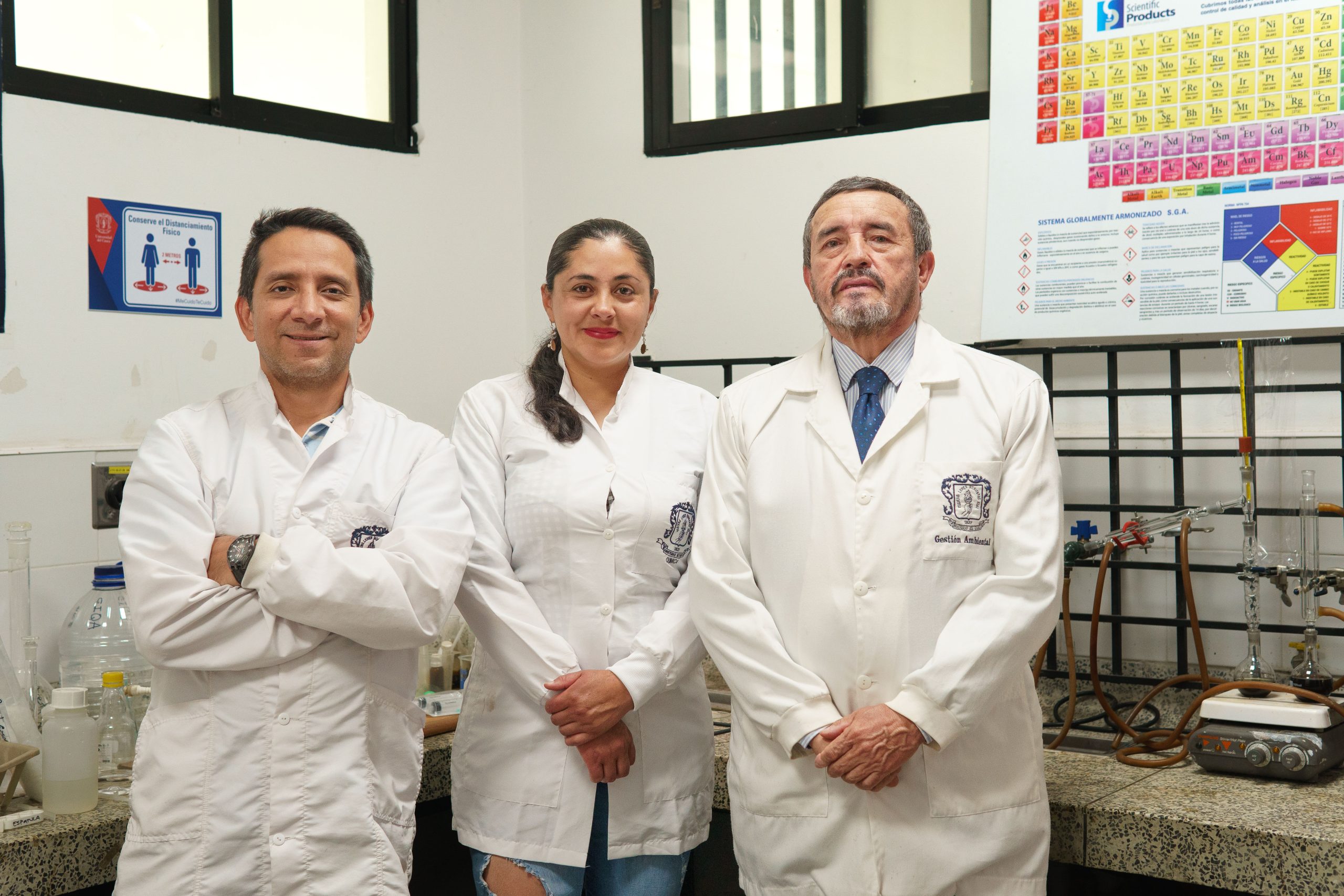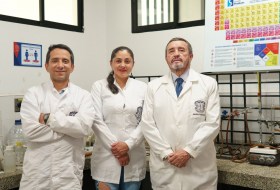News
Innovation That Transforms Lives: University of Cauca Patents Bioadsorbent for Water Purification
The dedication and hard work of José Antonio Gallo Corredor, Rodrigo Andrés Sarria Villa, and Norma Katherine Alegría Córdoba, members of the Environmental Analytical Chemistry Research Group, have paid off. The Alma Mater of Cauca has achieved a new patent for an innovative bioadsorbent with significant potential for water decontamination, developed from forest waste in the Cauca region.
From this regional think tank, committed to promoting “Research for Excellence” under the second strategic pillar of its Institutional Development Plan, "For an Excellent and Supportive University," it is a great honor to announce the registration of a new patent. This achievement not only fills us with pride for consolidating our knowledge generation efforts but also contributes meaningfully to strengthening a university committed to its surroundings. This milestone highlights the academic excellence of our research while directly improving the quality of life for communities that, sadly, lack access to potable water.

This groundbreaking patent was granted thanks to the efforts of the Environmental Analytical Chemistry Research Group, which developed an innovative bioadsorbent made from Cauca’s forest residues. This bioadsorbent can retain heavy metals in aqueous environments—impressive, isn't it? Notable for being sustainable and cost-effective, the material can be applied to water purification in industries, aqueducts, households, and communities with limited access to potable water. It significantly contributes to resource reuse and environmental protection. This marks the first patent granted to the Department of Chemistry in the Faculty of Natural, Exact, and Educational Sciences at the University of Cauca.

Researcher Rodrigo Sarria Villa expressed enthusiasm about the connection between scientific work and community needs, stating: “We are especially inspired by our territory and our people, seeking solutions through chemistry to address various challenges affecting our region.” He emphasized the importance of teamwork, noting: “We rely heavily on our students, who motivate us to develop projects that make a meaningful impact on the region.”
Researcher José Antonio Gallo explained the invention's purpose: “The idea is to mass-produce the resin we invented, which is capable of retaining heavy metals in both potable and wastewater,” underscoring the environmental and social impact that drove this noble endeavor.
Meanwhile, researcher Norma Katherine shared her joy and satisfaction with the results: “I feel a great sense of personal fulfillment, seeing that years of dedication in the lab, working behind closed doors, have borne fruit. This is a significant contribution that can transcend socially, improving people's quality of life and the ecosystem as a whole, aiding the environment with a strong sense of social responsibility.” Norma Katherine, a graduate of the university's Chemistry program, holds a master’s degree in Education from the University of Valle and is pursuing a Ph.D. in Educational Sciences at the University of Cauca. Currently, she teaches at the Agropecuaria Educational Institution in Totoró, a municipality in Cauca.
The bioadsorbent developed by the Environmental Analytical Chemistry Research Group represents a significant advancement in the fight against water pollution. Made from locally sourced forest residues and chemically modified, it acts as a natural filter that not only purifies water but also reduces environmental impact by reusing renewable resources and minimizing production costs. Potential applications include decontaminating industrial water, filtration in aqueducts and production systems, developing household filters for communities with limited treated water access, and creating sustainable water reuse systems for urban and rural settings.

The approval of this patent, facilitated by the Division of Innovation, Entrepreneurship, and Community Engagement (DAE) and the Research System of the Vice Rectorate for Research, marks a milestone in transferring technology to the market and society, reinforcing the university’s commitment to research excellence. This achievement, leveraging residues rich in polyphenolic compounds, reflects the scientific capability of the University of Cauca and its contribution to creating sustainable solutions for global challenges.
As an institution, we are proud to contribute to planetary care, promote the use of renewable materials, and train new generations of scientists committed to humanity and the environment. We extend our heartfelt congratulations to the researchers who made this bioadsorbent possible, as it will transform many lives. What a source of pride!
Writing: Communication Management Center


